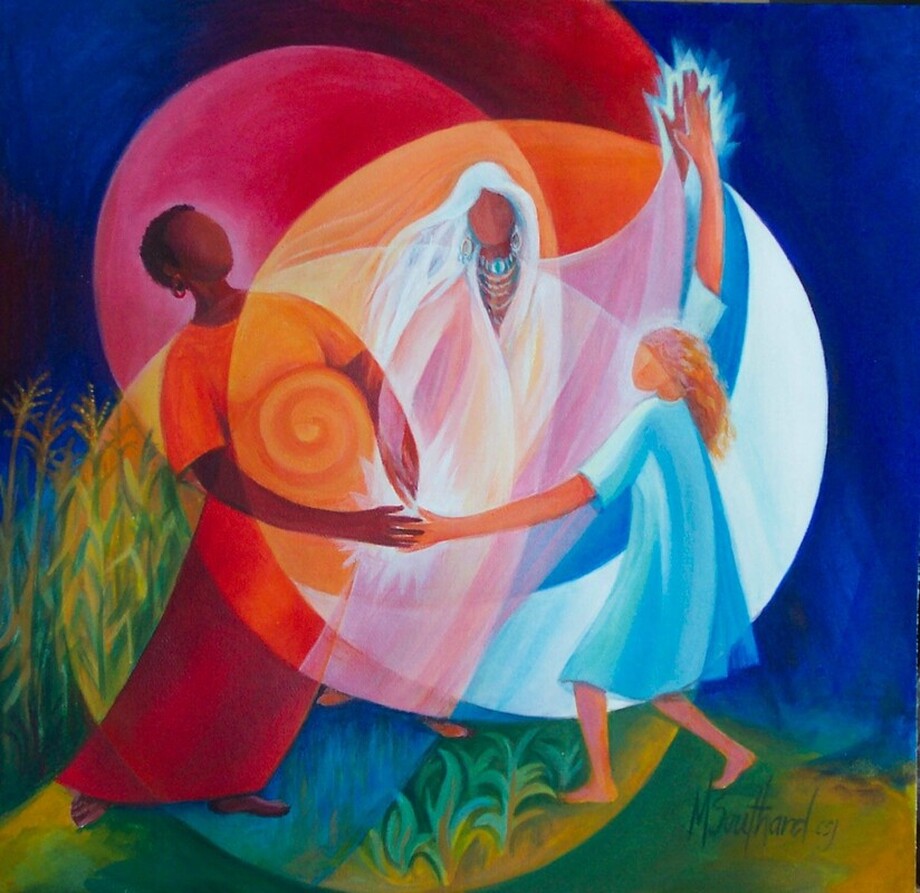The doctrine of the Trinity erodes the monarchical and patriarchal power of monotheism. When God is no longer viewed as solitary and stark unity, or absolute unrelated personality, we are able to live with -- not just fall down before -- our God.
When we worship a triune God we celebrate the love which flows in God's eternal dance of togetherness, and which we know through Jesus Christ as Lord of the dance. And when women, dancing Sarah's circle, affirm the importance of relationships in human life, they are doing more than reflecting women's psychology; they are showing all Christians what it means to be created in God's image.
Understood in this way, the doctrine of the Trinity sets forth a radical ethic of justice and care very similar to the ethic that psychologists see within women's lives. It is based on a vision that the self and the other should be treated as of equal worth; that despite differences in power, things should be fair; that everyone should be responded to and included and that no one should be left alone and hurt (Gilligan, p. 63). It sees morality as a problem of inclusion rather than a balancing of claims. It sets up standards of nurturance, responsibility and care.
- Barbara Brown Zikmund
